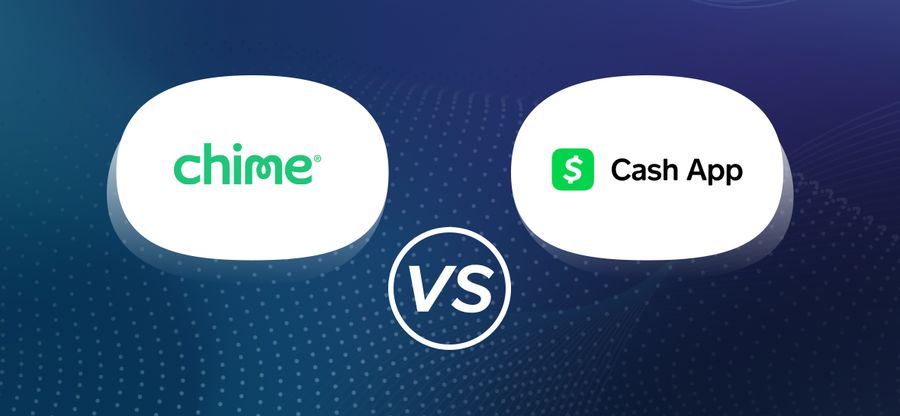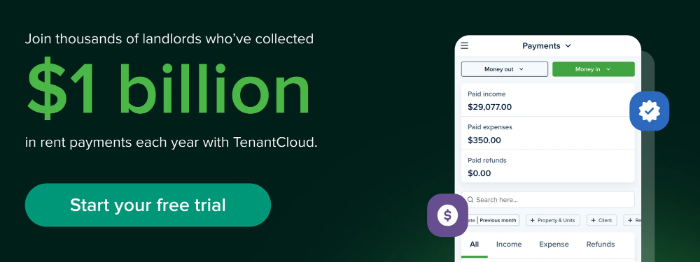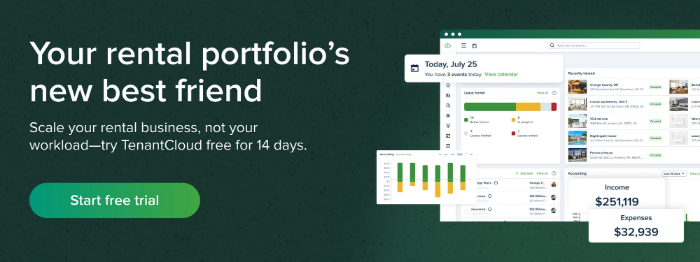Managing rental properties today looks a lot different from it did a decade ago. With tenants sending rent through apps instead of writing checks and landlords balancing books from their phones, the world of property finances has gone digital. In the middle of this shift, two names stand out: Chime and Cash App.
Both are leaders in the fintech app space, offering easy-to-use tools for sending, receiving, and managing money. But which one works best for your rental business? In this article, we’ll break down Chime vs Cash App—looking at everything from rent payment habits to property management accounting—so you can decide what fits your needs best.
Why Digital Banking Matters for Property Managers Today
Gone are the days when being a landlord meant waiting on mailed checks or standing in line at the bank. Today’s property managers and landlords are moving quickly, and they need tools that move with them. That’s where fintech apps like Chime, Cash App, Zelle, and Venmo come in.
These apps have become staples for modern money movement, not just among tenants, but landlords too. They allow accounts to be funded instantly, rent to be split or sent in seconds, and transactions to be tracked without digging through piles of paperwork. For small landlords, especially, having real-time access to property finances can make the difference between a smooth month and a stressful one.
It’s also about cutting costs. Traditional payment systems can come with steep processing fees or long delays. With the right app, many of those extra charges disappear, along with time-consuming tasks like manually recording every transaction. This leads to fewer errors and lower property management fees, allowing you to focus more on scaling your rental business.
Simply put, digital banking is a smarter way to manage rentals in 2025. And understanding how each banking app fits into your strategy is now part of running an efficient property.
Chime vs Cash App: A Quick Overview
At a glance, Chime and Cash App might seem like similar tools, but they serve different purposes. If you’re looking for a full-fledged bank account alternative, Chime is built to feel like a traditional checking account with added benefits. If you’re focused on fast transfers and perks like stock trading or Bitcoin investing, Cash App leads the pack.
Chime provides a no-fee checking account, automatic savings, and early direct deposit, along with a debit card backed by either Bancorp Bank or Stride Bank, both FDIC-insured banks. It’s designed to be your primary bank, offering tools like overdraft protection and even a credit-building card. For tenants who want a clean, streamlined place to manage bills and income—including rent payments—Chime checks a lot of boxes.
On the other hand, Cash App shines when it comes to peer-to-peer payments. It’s the go-to app for splitting dinner with friends or quickly sending money between roommates. With a Cash Card (its Visa debit card), users can unlock savings account perks like up to 4% APY—if they receive $300 or more via direct deposit. The app also supports stock and Bitcoin investing, giving it broader appeal to users looking for more than basic banking.
When it comes to managing rent payment habits, both apps have a role to play. Some tenants may prefer Cash App for its flexibility and ease of use, while others may turn to Chime for its banking backbone and savings tools. The key is knowing how these features align with your goals—and how to support tenants no matter which app they choose.
Cash App Breakdown: Peer-to-Peer Power for Tenants and Landlords
With more than 50 million users, Cash App has become a go-to solution for peer-to-peer payments, especially for younger renters who prefer to send money with just a few taps on their phone. But it’s more than just a quick way to split the dinner bill. For landlords and property managers, understanding how Cash App accounts work can help you better track payments, avoid confusion, and support your tenants’ preferences.
At its core, Cash App is a user-friendly app that lets people send and get money, make purchases with a debit card, and even dip their toes into investing. The Cash Card, a customizable Visa debit card, gives users access to in-store spending, Boosts for discounts at popular retailers, and even Bitcoin and stock investments. For tenants who want flexibility, it’s an all-in-one tool.
One standout feature is the ability to instantly transfer funds either to other Cash App users or to a linked bank account. This speed makes it ideal for last-minute rent payments. If a tenant is short on cash, Cash App Borrow (available in beta) lets eligible users take out small short-term loans or payday loans, usually up to $200, with a flat 5% fee.
And while it isn’t a primary bank account in the traditional sense, FDIC insurance does apply to balances held with a Cash Card, thanks to Cash App’s partnership with Wells Fargo as one of its partner banks. That means a certain level of protection for stored funds, which can help reassure both you and your tenants.
From a property manager’s perspective, Cash App can streamline transactions, reduce check-handling headaches, and encourage consistent rent payment habits, especially when tenants are already using the app regularly. Just make sure to educate them about fees, potential ATM limits, and how to ensure account security.
Chime Review: A Digital Bank Account with Credit-Building Perks
If you're looking for a more structured bank account setup—one that mirrors a traditional bank but offers extra flexibility—Chime might be the better fit. Designed to function as a complete digital primary bank, Chime combines modern tools with reliable banking features, all without monthly maintenance fees or minimum balances.
Chime users get access to a checking account and savings account, plus a debit card issued by either Bancorp Bank or Stride Bank, both FDIC-insured banks. That means deposits are protected up to $250,000, just like a brick-and-mortar bank. When you see “members FDIC,” that’s the safety net at work.
One of Chime’s standout features is early direct deposit; funds can land in a tenant’s account up to two days sooner than traditional banks, which can be incredibly helpful for managing rent payments on time. And if a tenant runs short, Chime’s SpotMe® feature allows for up to $200 in fee-free overdrafts, provided they have regular income going into their account.
But what really sets Chime apart is its credit-building tools. The Credit Builder Card is a Visa debit card with no interest, no overdraft fees, and no credit check required. Payments are automatically reported to all three credit bureaus, helping renters establish or enhance their credit scores while paying bills, including rent.
For tenants who want an all-in-one banking app that helps them build financial stability, Chime is a solid choice. And for property managers, encouraging tenants to use Chime can result in more predictable rent payment habits and fewer missed deposits, which is a win on both sides of the lease.
Rent Payment Tools: Zelle vs. Cash App and Other Fintech Apps
When it comes to digital payments, not all apps are created equal, especially for recurring expenses like rent. Two of the most widely used options are Zelle and Cash App, but other fintech apps like PayPal, Venmo, SoFi, and Varo are also gaining traction among tenants. So, how do they all compare?
Let’s start with Zelle vs. Cash App. Zelle is backed by traditional banks and works directly through your primary bank account, offering fast sending and receiving with no middleman. It’s great for tenants who bank with larger institutions and want to avoid new apps. The downside? Zelle only works if both sender and receiver are set up to use it, and there's little buyer protection if money is sent to the wrong person.
Cash App, on the other hand, is more flexible. It doesn’t require both parties to have traditional banks, and with the Cash App account, tenants can pay, save, invest, and even borrow. It’s ideal for those who want more access and control, especially when they’re not using a standard bank account.
Other fintech apps like PayPal and Venmo work well too, but they come with their own quirks: some charge fees for instant transfers or restrict how you can link a card. Meanwhile, apps like SoFi and Varo aim to blend savings, spending, and even investing into one dashboard. That’s great for tenants trying to save and build wealth, but potentially confusing for property managers who just want timely rent payments.
That’s why it’s important to guide tenants toward options that are secure, easy to track, and simple to integrate with platforms like TenantCloud. When renters use tools that pair well with property management accounting, everyone wins: you get reliable data, fewer surprises, and smoother transactions. Because cash and checks continue to fade out, having the right digital payment system is a must.
Property Management Accounting in a Fintech World
It’s no secret that property management accounting has evolved. With tenants sending cash through their favorite apps and landlords juggling multiple platforms just to confirm payments, staying organized can quickly become overwhelming. That’s where tools like Chime and Cash App have started playing a role, not just for renters, but for managers looking to streamline their finances.
Apps like these allow landlords to receive transactions directly into a connected account, often within minutes. But with speed comes complexity. Variable fees, limited transfer options, and mismatched services between platforms can make it harder to track exactly what’s coming in—and when. For example, a tenant might pay with Cash App, but delay completing the transfer to a primary bank account, creating a gap in your accounting workflow.
Rent Payment Habits Are Changing: Here’s How to Adapt
More and more tenants are ditching checks and traditional bank services in favor of mobile apps for paying rent. And honestly? It’s easy to see why. With just a few taps on their phone, renters can transfer cash, schedule recurring deposits, or split rent with roommates in seconds. But these changing rent payment habits can leave landlords wondering how to keep up.
The good news: You don’t have to resist the change. You can adapt to it. First, recognize the benefits. Tenants are more likely to pay on time when they can do it conveniently from their favorite app. Plus, mobile-first payments often offer instant access to funds, reducing delays and last-minute excuses.
That said, there are some risks. Apps like Cash App and Venmo are fast, but they can also be inconsistent when it comes to record-keeping or credit reporting. And if a tenant sends money to the wrong account, reversing that mistake can be tricky. That’s why it’s critical to set clear expectations: tell tenants exactly how and where to pay, which debit or credit card to use if necessary, and when deposits are due.
Most importantly, keep records. Whether you’re using TenantCloud’s rent collection tools or another bank-connected platform, make sure you’re tracking each transfer to avoid surprises during tax season, or worse, an eviction case.
How Cash Apps Help Lower Property Management Fees
One unexpected perk of embracing apps like Chime and Cash App? They can actually help cut down on property management fees. For landlords looking to reduce overhead, that’s a big win.
Traditional rent collection often includes payment processing fees, bank surcharges, and delays in transfers—all of which eat into your bottom line. But with tools like Cash App, tenants can deposit directly into your linked account, often for free, especially when direct deposits are enabled.
By offering digital options that eliminate third-party costs, you give tenants a simpler, faster way to pay, and you keep more of what you earn. It’s also a great way to show renters you’re flexible, without compromising your accounting standards.
Of course, the answer isn’t to rely solely on free apps. Use them strategically. Integrated platforms like TenantCloud offer a structured way to monitor fees, automate deposits, and reduce errors, so you can scale your business without increasing your workload.
Why Using Both Apps May Be the Best Answer
If you’re trying to choose between Chime and Cash App, here’s the truth: you might not need to choose at all. Each app serves a different purpose, and together, they offer a flexible toolkit for managing bank needs, payments, and digital cash flows.
Chime is ideal for tenants who want a full bank account experience with FDIC insurance, savings, and even credit-building tools. It’s great for renters with steady jobs and consistent deposit schedules who want to manage their money in one place.
Cash App, meanwhile, is perfect for quick transactions, rent splits, and flexible transfers. Its peer-to-peer style makes it a favorite for younger renters and side-giggers who just want to send money fast.
As a landlord or property manager, you don’t have to choose one “only option.” Supporting both apps—and more importantly, understanding how they fit into tenants’ lives—puts you in a better position to encourage on-time rent, reduce missed payments, and stay future-ready.
The future of property management is digital, decentralized, and dynamic. And TenantCloud is designed to meet you there, no matter which banking app your tenants prefer. That’s the real answer to smarter rentals.
Automate Your Rent Collection with TenantCloud
Ready to take the guesswork out of rent collection? With TenantCloud, you can simplify rent tracking, transfer management, and property management accounting in just a few clicks. Our platform integrates seamlessly with major banking services and gives you full control over every transaction, from the moment a tenant pays to the moment it hits your account.
Sign up for our free 14-day trial today to see how TenantCloud can elevate your property management business!







